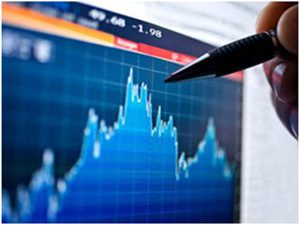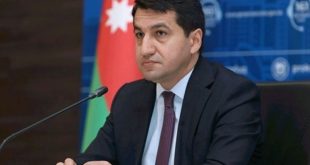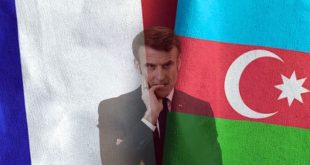
The European Rating Agency (ERA) has issued a credit rating to Azerbaijan at the level of “BB +” with a “stable” outlook, the agency’s report published on Oct, 20 reads.
According to the agency’s forecast, real GDP growth in Azerbaijan in 2018 can be 1.5 percent, in 2019 – 2.1 percent. Nominal GDP is expected at $44.1 billion and $47.441 billion, respectively.
The credit rating reflects the observed stabilization process in the Azerbaijani economy.
According to analysts of the agency, the basic processes in the economy demonstrate positive trends, such as stabilization of inflation, positive indicators of the external sector.
The agency expects strengthening of the economy’s real growth, supported by a more positive external environment of the country’s main export goods.
Among the basic factors and prerequisites, there is a low probability of political shocks, including the situation around the Nagorno-Karabakh conflict, a stable level of production in Azerbaijan’s oil and gas sector and the revival of the country’s banking sector.
| Indicators | 2017 | 2018 | 2019 |
| GDP, billion $ | 40748 | 44100 | 47441 |
| GDP growth rate, percent | 0.1 | 1.5 | 2.1 |
| GDP per capita, thousand $ | 4.15 | 4.6 | 4.8 |
| Unemployment, percent | 5 | 4.9 | 4.9 |
| Inflation year to year, percent | 12.9 | 5.9 | 5.7 |
| Reserves of the Central Bank, billion $ | 5334.6 | 6200 | 6200 |
| Exports, billion $ | 14.1 | 15.3 | 16 |
| Imports, billion $ | 9 | 8.6 | 9.3 |
| Current account surplus | 3.5 | 5.7 | 5.4 |
It is noted that today both the oil and non-oil sectors provide the growth of the economy of Azerbaijan. At the same time, as the agency expects, the prices for Brent crude oil will vary in the range of $60-70 per barrel, which will help the economy grow further.
On the other hand, the agency noted the significant role of the non-oil sector in economic growth. So, in January-August 2018, the non-oil economy grew by 10 percent as compared with eight months of the last year. The declining inflation (2.7 percent in January-August 2018) and the steady manat rate testify to weakening of monetary pressure, which is a vital condition for reviving the investment inflows.
The agency’s analysts indicate that the country’s economy is in a more stable and predictable phase, thanks to moderate inflation and stable exchange rate. As a result, the currency risks are mitigated and the real incomes and wages of the population enter a positive growth zone. As long as this trend continues throughout 2018-2019, the additional support for GDP growth can be expected.
By Taleh Mursagulov
 Oval Useful news from Azerbaijan and Caucasus
Oval Useful news from Azerbaijan and Caucasus


